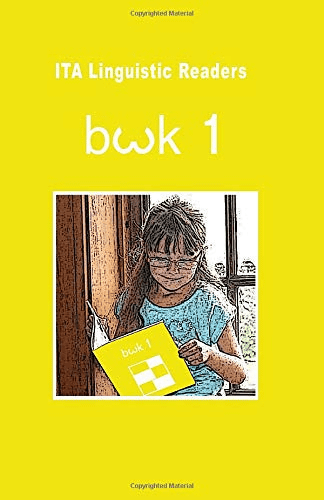Proposal for a completely new alphabet, 'ITA,' has left thousands of children unable to spell correctly

In the 1960s, the UK introduced an educational method called 'ITA (Initial Teaching Alphabet)' to help children read texts faster by making spelling more phonetic and intuitive. The program, which targeted tens of thousands of children, was abandoned and withdrawn in the 1970s, but some of those who learned to write with ITA still cannot spell modern English correctly.
The radical 1960s schools experiment that created a whole new alphabet – and left thousands of children unable to spell | Education | The Guardian
Emma Lofhagen , an editor, helped her mother proofread her writing from a young age. Her mother was a cultured person who read several books a week and quoted Shakespeare in her writing, but for some reason she made mistakes that even her child, Lofhagen, could see, such as spelling 'me' as 'mee.'
The cause of this was the ITA educational program implemented in the UK and other English-speaking countries from the 1960s to the 1970s.
English is known as one of the most difficult languages in the world to learn to read and write. For example, there are 20 different spellings for the sound 'i,' such as 'eye,' and words that contain the same spelling each have a different sound, such as 'through,' 'though,' and 'thought.'
The ITA system, which uses 44 letters that each represent a different sound and was designed to teach children to read faster, was introduced in 1966. By 1966, 140 of the 158 education authorities in the UK were teaching ITA in at least one school.

ITA was designed to make reading faster, not to replace the existing alphabet, so by the age of 7 or 8, children were expected to seamlessly switch to education using the standard alphabet.

However, in reality, it is not 'seamless' and in the case of Mr. Lofhagen's mother, it seems that she was not taught that there was anything other than ITA. In this way, it is believed that there are thousands of people like Mr. Lofhagen's mother who cannot use the alphabet correctly.
According to Dominic Weiss, professor of early childhood education at University College London, the transition from the ITA to the standard alphabet essentially meant 're-learning how English works from scratch'.
Professor Lorna Stainthorpe of the University of Reading, who specializes in literacy development, points out that James Pitman, the Conservative MP who proposed the ITA, was not an educationalist, and calls the ITA a 'terrible attempt.' On the other hand, she also says that there are people who have no problems with spelling even after studying the ITA, and there are people who are bad at spelling even if they have not studied the ITA, so 'there is no evidence to prove that the ITA has had a negative effect on spelling.'
Related Posts:
in Note, Posted by logc_nt







